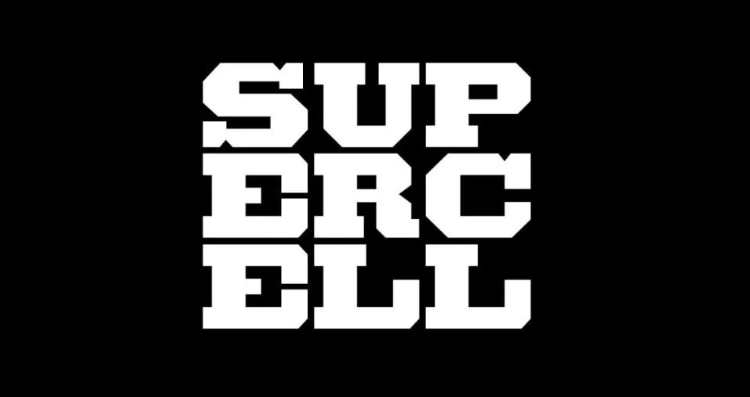Games were one of the first applications in the mobile space and have become one of the largest sources of revenue for Android and iOS. In fact, in 2017, games accounted for 76% of total iOS and Google Play revenue.
In the realm of technology ecosystems, Europe has surpassed the vast majority of the world in this aspect of gaming, becoming a golden market that every Internet company aspires to capture. There are high quality users, mature payment habits, high advertising revenues and advanced technologies.
The European gaming industry has seen a steady rise of unicorns, with more than a quarter (25.9%) of all billion-dollar-plus valued gaming companies worldwide born here in the last 15 years. These include Supercell (Finland), King (Sweden/UK), Rovio (Finland), Mojang (Sweden), and game engine maker Unity (Denmark). In comparison, there are only three U.S. gaming companies.
However, back in 2016, China surpassed the US as the world’s largest consumer gaming market, with 11 prominent gaming companies established during this period, dominating the industry as a whole. Chinese gamers now spend more than $25 billion a year on games, which is not surprising considering the huge size and booming growth of the Chinese market.
However, if you focus on the top 10 handheld games in terms of revenue in 2017, the gap between Europe and China narrows considerably. Europe accounted for 28% of global handheld game revenue, compared to 36% in China. This is thanks to Supercell and King, and competing with thousands of Chinese games, it is by no means easy for the European market to earn this revenue.
Where mobile games draw the money
Europe, home to many of the world’s most iconic game brand producers, has been attracting many investors for years. One important reason for this is that in 2017, Europe was already a huge market with a global market capitalization of $108.8 billion, and it is still growing rapidly, at nearly 8 percent annually.
For entrepreneurs and investors, this market is also very attractive in terms of the capabilities it demonstrates at all levels. A successful founder can start a game company and decide the direction of the company, including whether they accept investment and when they want to sell or go public.
In just a few years of launching a game, a game company will make anywhere from $5 million to $10 billion in revenue. In Europe, a $15 billion to $20 billion European gaming business is about to rise as the market not only expands, but grows.
A startup can grow in three to five years, while for most venture capital-backed technology companies it takes five years or more. Russian game developer Playrix is an example: in 2015 the company’s total revenue was less than $50 million, while just two years later it was approaching $1 billion in total revenue. Then there’s Supercell, which grew its revenues from zero in 2011 to $101 million in 2012, $892 million in 2013, and $1.8 billion in 2014.
The reality of this space is that a game can either be a smash hit or go silent. The cruelty of the game industry is that there is no such thing as “longevity”. What is fascinating about this industry is the fluidity and dynamism of the space and its almost limitless potential to create new experiences.
The “money tree” of cultural context
In general, in the world of gaming, no game lasts forever, and over time some players may fade away. However, there is evidence that strong game companies can be long-term moneymakers, such as Lineage (launched in 1998 and hailed as the world’s most successful online game), WarCraft (2004), Minecraft (2009), a high-freedom sandbox game, and World of Tanks (2010). World of Tanks” in 2010, “Clash of Clans” in 2012, and so on.
And Doom, a game that came out in the early 90s, has never retired from history, and the latest version of the game, since its relaunch in 2016, is still estimated to have generated sales of at least hundreds of millions of dollars. The European gaming market has always had no shortage of great creative teams, and the games developed by these teams have always sold well in the market and then gone on to replicate that success.
One of the main reasons that the European continent has been able to achieve such a proud success in the gaming field is that games incorporate a deeply rooted culture whose values place extreme importance on style and product, and in this context, game developers create products that are immersive to the player while still ensuring quality.
This sense of immersion, combined with the sense of European games, is a non-data-driven element of game building, a unique talent known as “limited resources”. British indie studio Bossa Studio has used game programming marathons to create unique games like Surgeon Simulator and I Am Bread or early versions of Rovio. And Supercell is known for its creative model, with four games generating more than $2 billion in revenue from a team of only 244 people, making it the “dream factory of games”.
Europe has a long history of game development, from Acme Software in 1984 (the predecessor of British game studio Rockstar North, known for games such as GTA (Grand Theft Auto)) to Ubisoft (Ubisoft Entertainment Software, a game producer, publisher and reseller) in 1986 and Bullfrog in 1987. Productions (a British game developer) in 1986, to Team17 (a British game creation team) in 1990, Gameloft (a French company developing and distributing mobile-based video games) and Jagex (the UK’s largest game developer and publisher) in 2000, to Gameforge (a ) in 2003 and Supercell (the Finnish mobile gaming giant) in 2010.
Overall, these game companies have spawned a second generation of talent across the continent that will in turn lead the next wave of innovative game companies. The European gaming industry has never been short of unicorns, and a new generation of visionary entrepreneurs will emerge in the next generation of gaming companies.
